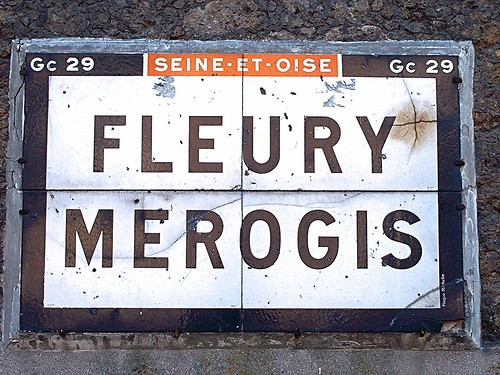Pointing Fingers: Inmates Mails Own Digit To Justice Minister To Protest French Jail Conditions

A prisoner in a French jail has mailed part of his severed finger to the country’s justice minister in a bid to be moved to another facility closer to his family.
The Guardian newspaper of Britain reported that the prisoner’s request to be relocated had already been approved by corrections authorities when the digit arrived at the office of Justice Minister Christiane Taubira.
The inmate is housed in Fleury-Merogis prison just south of Paris and sought a move to Dijon in the east, according to Le Figaro, the French daily.
"We were just waiting for a space [in another prison] to become free in the region requested," a prison spokesman said.
The latest horrific case is reminiscent of the tale of Roland Agret, a wrongfully convicted murderer who sent pieces of two of his fingers to the justice minister in the early 1980s. His conviction was eventually overturned in 1985.
In a broader context, the finger incident highlights worsening conditions in French prisons – the Justice Ministry reported that the nation’s prison population soared to an all-time high of 67,161 this year, up from 50,000 three years ago. (The entire system has an official capacity of only 57,170).
In 2006, in a report on the state of France’s prison system, the Council of Europe's human-rights commissioner, Alvaro Gil-Robles, said “some things I saw during my visit were deeply distressing and shocking,” including overcrowding, dirty cells, filthy lavatories, broken showers and mattresses on the ground.
He described two prisons, La Santé in Paris and Les Baumettes in Marseilles, as “on the borderline of human dignity.”
Regarding a detention center under the Palais de Justice in Paris, he told the Libération newspaper: “In all my life, except perhaps in Moldova, I have never seen a worse center than that.”
Earlier this year, French prison wardens (who cannot legally go on strike) staged a demonstration to protest prison overcrowding by blockading entrances to the jails.
One of the principal reasons for the skyrocketing prison population has to do with former President Nicholas Sarkozy’s get-tough policy on criminals.
Upon election to the Palace Elysee in 2007, Sarkozy introduced minimum sentences for repeat offenders and increased the list of crimes, including domestic violence, that were deemed to be punishable by incarceration.
He also encouraged judges to issue more life sentences to the most dangerous criminals, even after their regular terms in jail expired.
One of the unintended consequences of prison overcrowding has been a near-epidemic of suicides by inmates. In 2008, 115 inmates killed themselves (one every three weeks), a 20 percent jump from the prior year.
Justice Minister Taubira herself has vowed to reform France’s troubled jails, but, much to the consternation of conservatives, appears to have a sympathetic view towards lawbreakers, with a focus on rehabilitation.
“The prisoner remains a human being, a citizen,” she told RFI radio. “He has needs and we have to work more on training and reinsertion.”
In February, prior to the election of the Socialist government of Francois Hollande, the government had passed a law to construct an additional 24,000 prison units within five years as a cost of €3 billion ($3.7 billion). But after her appointment, Taubira seemed to reluctant to pursue that plan.
“We'll have a quick look at proposed prison construction projects and then reorient budgets,” she said.
© Copyright IBTimes 2025. All rights reserved.





















